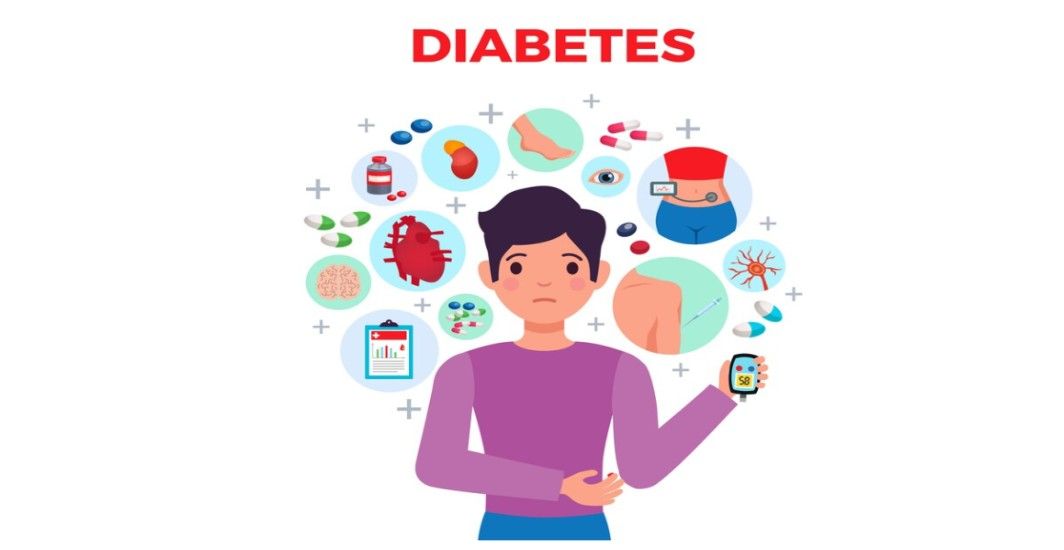Diabetes Management
What is prediabetes and can it be reversed?
5 min read
By Apollo 24/7, Published on - 04 November 2020, Updated on - 11 December 2023
Share this article
0
0 like

What is prediabetes?
What are the signs and symptoms of prediabetes?
What causes prediabetes?
Researchers are not sure of the exact cause for the insulin regulation process to become impaired. A few contributing factors include:
- Being overweight and having excess fat around the abdomen increases the risk for prediabetes because the extra fat tissue can make the body more insulin resistant. A large waist size of more than 40 inches in men and 35 inches in women is linked to insulin resistance.
- Lack of physical activity increases the risk of prediabetes. Being active helps manage weight, improves glucose control, and helps in utilizing insulin more effectively.
- The risk of prediabetes increases if there is a history of type 2 diabetes in the family (parent or sibling).
- Though diabetes can occur at any age, the risk of developing prediabetes increase after 45 years of age.
- Gestational diabetes (diabetes during pregnancy) increases the risk of developing prediabetes for the mother. It also increases the child’s future diabetes risk.
- People with polycystic ovary syndrome, a condition characterized by obesity, irregular menstruation cycles, and excessive hair growth in women, have a higher risk of prediabetes.
- Sleep disorders such as obstructive sleep apnea increase the risk of prediabetes.
- Smoking can be a factor that causes prediabetes, as nicotine is linked to increased insulin resistance.
Additionally, when health problems like high blood pressure, low HDL (good) cholesterol, and high triglycerides (a type of fat) occur along with obesity, they are associated with insulin resistance, which can trigger prediabetes.
Can prediabetes be reversed?
How can prediabetes be reversed?
Reducing weight – Even a modest weight loss of about 5% to 7% can significantly improve blood glucose control and reverse prediabetes.
Increasing physical activity – Moderate activity of at least 150 minutes per week, which is 30 minutes for 5 days a week, is recommended to keep type 2 diabetes at bay.
Consuming a healthy diet - A diet that includes whole grains, fruits, vegetables, and healthy fats; and eating regularly scheduled meals throughout the day can also prevent type 2 diabetes.
Reducing stress
Quitting smoking
Limiting alcohol intake
Conclusion
You can also try the Apollo 24|7 Diabetes Self-Management Tool to log your sugar values, track patterns, know all about food nutrition and more.
Diabetes Management
Consult Top Diabetologists
View AllLeave Comment
Recommended for you

Diabetes Management
Turning Back the Clock on Diabetes: Insights into Successful HbA1c Reversal
Reversing diabetes may soon be more than just wishful thinking. Recent research studies reveal the potential for treatment dynamics to shift from just managing the disease to actually reversing your HbA1C levels. Encouraging results from new strategies such as intensive lifestyle therapy point towards a future where turning back the clock on diabetes might be possible.

Diabetes Management
Eggplants and Diabetes: A Healthy Addition to Your Diet
Eggplants are a healthy choice for individuals with diabetes. Low in calories and carbs, they aid in blood sugar regulation with fiber and antioxidants. They also promote heart health and weight management. Include grilled or roasted eggplant in salads, stews, or stuffed dishes. Practice portion control and consult with a healthcare provider for personalized dietary advice.
%20(1).jpg?tr=q-80)
Diabetes Management
Balancing Diabetes With a Ketogenic Diet
Diabetes management requires incorporating a balanced diet and lifestyle changes. Ketogenic diets, with their low-carb, high-fat & Protein approach, offer potential benefits for blood sugar control and weight loss. However, individual dietary needs, potential side effects and the importance of a balanced diet make a holistic approach to diabetes management crucial.
Subscribe
Sign up for our free Health Library Daily Newsletter
Get doctor-approved health tips, news, and more.
Visual Stories

8 Fruits That are Incredibly Healthy for Diabetes
Tap to continue exploring
Recommended for you

Diabetes Management
Turning Back the Clock on Diabetes: Insights into Successful HbA1c Reversal
Reversing diabetes may soon be more than just wishful thinking. Recent research studies reveal the potential for treatment dynamics to shift from just managing the disease to actually reversing your HbA1C levels. Encouraging results from new strategies such as intensive lifestyle therapy point towards a future where turning back the clock on diabetes might be possible.

Diabetes Management
Eggplants and Diabetes: A Healthy Addition to Your Diet
Eggplants are a healthy choice for individuals with diabetes. Low in calories and carbs, they aid in blood sugar regulation with fiber and antioxidants. They also promote heart health and weight management. Include grilled or roasted eggplant in salads, stews, or stuffed dishes. Practice portion control and consult with a healthcare provider for personalized dietary advice.
%20(1).jpg?tr=q-80)
Diabetes Management
Balancing Diabetes With a Ketogenic Diet
Diabetes management requires incorporating a balanced diet and lifestyle changes. Ketogenic diets, with their low-carb, high-fat & Protein approach, offer potential benefits for blood sugar control and weight loss. However, individual dietary needs, potential side effects and the importance of a balanced diet make a holistic approach to diabetes management crucial.

